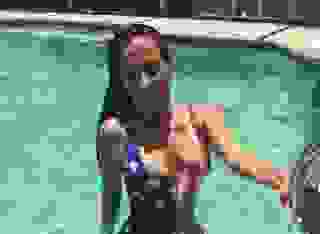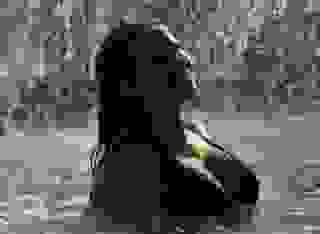- Mature
- The Tides Of War Pt. 02
Note: You can change font size, font face, and turn on dark mode by clicking the "A" icon tab in the Story Info Box.
You can temporarily switch back to a Classic Literotica® experience during our ongoing public Beta testing. Please consider leaving feedback on issues you experience or suggest improvements.
Click hereChapter 6
The voyage went without any incident and the Easton Comet tied up at Southampton sixteen days after leaving Karachi, on a dull April morning.
He boarded the boat train to London, marvelling at the green English countryside has it passed his window.
At the reception desk of the Ascot Hotel, he passed over the letter the Prince had given him.
Within seconds the hotel manager appeared and conducted him personally to a suite while porters carried up his luggage.
After settling in, he bathed and changed, then took a handsome cab to the address of the Princes bank.
The gothic columns outside its entrance giving it an imposing air.
Inside he presented the Princes second letter addressed to the Bank Manager. Once again within moments the Bank Manager a Mr Tompkins was ushering him into his dark oak lined office.
David explained that he was in England to purchase equipment for the Prince and that he would require the means to pay for it.
In short order a chequebook was provided for him along with the necessary documents to validate them, whilst he took tea with Mr Tompkins.
On the way back to the hotel he stopped off to buy more magazines on hunting, the ones he had bought in Karachi being six months old.
Once back in his suite he began to read them, has he planned his next move?
He decided not to use the more renowned London gun makers, whose clientele were normally the very wealthy or aristocracy, has some one may query his requirements.
Two days later he took a train to Birmingham and booked into The Stratton hotel, from there he telephoned to make an appointment with a Mr Tomas Cartwright of Cartwright and Son makers of fine firearms.
The next morning at ten he was shown into the office of Mr Cartwright who was sat behind an imposing desk with a younger man who looked to be in his mid-thirties stood by his side, who was introduced has Henry Cartwright his son.
David took an immediate liking to the father and son with their bluff friendly mannerisms.
He outlined his requirement for a box magazine bolt-action rifle firing a smokeless bullet. Mr Cartwright sat back in his chair, "Henry is the authority on such weapons has you have described," He murmured, "perhaps it would be better if you talked to him."
David followed Henry through to his office and sat down in front of his desk.
Henry began the conversation "what calibre were you thinking off Mr Ramage" he asked.
David took a chance and explained exactly what the rifles were to be used for.
Henry listened sat back in his chair. When David finished he smiled, "what you propose is not new, most of the foreign powers in Europe and America are thinking along similar lines. Unfortunately most are loathe to give up black powder and large calibre bullets."
He sat twiddling a pencil thinking for a moment, "I would suggest the .303 round, it has already been tested and the results of those tests are most encouraging. Regarding the bolt mechanism you have a choice between the two leading contenders in this field either Lee or Mouser. The Mouser is better for hunting but the Lee allows a faster fate of fire. We have examples of both in our workshops.
They sat talking for hours discussing the finer details of the requirement. It appeared that Henry had a small development team working on the practicality of a rifle firing 303 ammunition from a hunting prospect.
He agreed to return the following day to continue the conversation.
Over the next three days he spent at the company, he was shown the workshops and the different bolt mechanisms, slowly the requirement became agreed.
It would be shorter than the current Martini Henry by seven inches suiting the stature of the Ghurkha and having a Lee modified bolt action.
In talks with the company's ammunition expert it was explained that the cordite round had a higher muzzle velocity of 1970 feet-per-second but a lower chamber pressure of 17.5 tons per square inch resulting in lower recoil, longer range and a much flatter trajectory than black powder rounds.
On tests carried out they had found out that a square rifling of the barrel suited the .303 round best.
The only downside to it was due to its velocity a bullet was likely to pass through a body. But it was suggested that if part of the copper sheath of the bullet was removed and the lead head of the bullet was blunted creating what was called a hollow point bullet, it would spread on impact creating more damage to a body.
During his talks with Henry the question of cost came up, when informed 150 rifles would initially be required in lots off 50 rifles, a price of £25 each was agreed, to offset tooling costs of the price per rifle, dropping with subsequent lots, subject to testing it.
Henry promised a working model would be ready in a week's time.
On his return to London David made a number of purchases for himself comprising of a leather cased compass, a powerful pocket telescope and a matching brace of Smith and Wesson New Model Number 3 .44 pistols with six and half inch barrels. He added 200 rounds of ammunition to the order.
Reading the newspapers, it was full of demands for Gladstone to rise of a force, to be sent to avenge General Gordon's death at Khartoum and tensions were rising in South Africa with the Dutch settlers of Natal. It seemed to David that the British Army were going to have its hands full all across the Empire.
When he returned to Birmingham he found a prototype rifle ready for his inspection.
The rifle had full beech furniture covering the rifle with just an inch of muzzle protruding. And angled box magazine came down to nearly level with the trigger guard. Henry demonstrated how the bolt mechanism worked. Lifting the bolt to fifty degrees allowed to be drawn back some three inches opening the breech, sliding the bolt back forward and dropping the bolt down again loaded a bullet into the breech and cocked the firing pin. There was a knurl knob on the left hand side of the rifle that could be clicked down thereby making the rifle safe.
When David tried it Henry immediately noticed that he was left handed.
"You realise that the tooling for this, to make it mass production will mean we can only make right handed rifles" he warned.
"Yes I realise that, unfortunately" David replied.
Henry smiled "I can get Mr Jenkins our master gunsmith to make you a left handed variant but it will be hand built".
David's face brightened "If that's possible, yes please".
Later Henry along with a Peter Hynes the ammunition expert drove out in Henry's carriage to the test rifle range of the company.
Henry explained on the drive out, the sight for the rifle was calibrated to a thousand yards on a folding column operated by a knurl screw. At the foot of the column were two screws, one either side of the column for zeroing the sights to the individual shooters eye sight.
When they arrived at the range there were already some other men present. David followed Peter down to the firing pit off the 300-yard range where he took up a position alongside of him. Peter opened the breech and loaded five bullets into the magazine, whilst Henry waved a flag to the men in the butts to take cover.
Peter fired, it was a crack rather than the boom David was used too, but remarkably there was not the dense smoke that normally accrued when firing the Martini Henry.
A pointer appeared from below the butt showing a bull. The next four shots followed suite. David could see through his telescope that all the shots were in a one-inch group.
Peter loaded another five bullets into the breech, "now for rapid fire" he said. He discharged the five shots off in less than eight seconds, all hitting the target within a four-inch group. David had to admit it was remarkable shooting.
"Do you want to try now? Peter asked.
David being left-handed found it a little hard to load it, he notice that the sight was a hole that you looked through to line up with the blade front sight. He fired getting a bull albeit on the left of the six-inch bullring, he had to change hands to cock the rifle for the next round, which too fell inside the bull. His remaining shots all hit the bull but scattered around it.
"If you hadn't had to change hands you would have had a tighter group," Peter told him.
He examined the rifle has the targets were changed noticing that the sight was calibrated in one hundred yard incidents from two hundred yards.
He mentioned this to Peter, who replied that the trajectory was so flat it only began to show around the three hundred yard mark stage.
Looking down the range he saw two beef carcases had been raised. Peter smiled at him, "I want to demonstrate the effect the bullet has on flesh, he removed a bullet from his pocket and one from the box that held the ammunition and handed them to David.
The standard round had a sharp point encased in copper; the other bullet that Peter took from his pocket had a little of the copper removed from the lead head of the bullet the head was no longer pointed but blunt and slightly concaved. "There called hollow points," Peter told him, "the idea is when it hits the target it squashes creating more damage.
He loaded the standard round and fired at the right hand carcass then with the hollow point fired at the left hand carcass.
They had to wait while the men from the butts brought them to see the results.
David was amazed, the right hand carcass had a neat hole through it, whilst the left hand had a neat entrance but a jiggered two-inch on exit.
Peter, then fired the rifle from 500 hundred yards and 1000 yards each time registering hits around the bull, it was really remarkable shooting.
Has they drove back to Henrys office David mentioned that the maximum capacity of the magazine was only five rounds. "Well that is the normal capacity for a hunting rifle" Peter replied. "One supposes that if you added more the magazine would extend below the trigger guard", Henry added.
Peter hesitated before replying, "It would spoil firing in the prone position somewhat. Let me think about the problem when we get back."
Henry changed the subject "So David what do you think regarding the rifle will it suite your purpose".
David nodded "the only thing the test model lacked that I could see were provision for the sling and a bayonet fitting".
"Those are easily rectified, I should be able to lay my hands on a suitable bayonet and develop a fitting for them.
Once in Henry's office they discussed payment. Agreeing on an initial payment off £3500 on completion off the first fifty rifles to offset the cost of the retooling and 250,000 rounds of the hollow point cartridges, followed by a payment off £1000 for the second batch of 50 and a further 250,000 cartridges ending with a payment £700 for the final 50 and 300,000 rounds with an open option for further rifles at, £7/10 shillings each and £3/5shillings per 1000 rounds of ammunition.
David handed him the cheque for the £3500 with the request that when the items were packed, the crates be marked has hydraulic pumping equipment and the address he would give later for where to send them.
Henry said he would be informed when the shipment would be ready but too allow at least five weeks.
Back in London David wrote a long letter to the Prince out lining his progress to date and the hope that he would be returning by June.
With nothing to do but wait, David took the opportunity to explore London, visiting the Tower of London and the Science Museums. He added to his book collection on histories of the American Civil War, the Indian and Afghan Wars, Gordon's Massacre has well has books describing the people of those countries. He bought up to date maps on the North West Frontier and spent long hours studying them.
Since leaving the Prince, David had, had hardly any time to think beyond the task assigned to him. Speed had been foremost in his mind. But these last few weeks had given him time to realise the magnitude off the job the Prince envisaged he was to undertake, to train a modern army unit.
He began to think on how best that could be accomplished.
Nearly four weeks after returning to London he had a visitor in the form of Henry.
He came into his room carrying a fine leather rifle case.
After greeting him and giving him a malt scotch, Henry opened the case "your rifle is ready" he said with a smile.
The wood furniture off the rifle was made from mahogany with a rich grain showing through its waxed finish.
When he picked it out of the case he saw it had a hatched pistol grip with an ebony end cap, and cheek rest.
Fitting it to his shoulder he realised the balance was perfect.
"Henry it's beautiful," he enthused.
Henry chuckled, "Mr Jenkins kicked up a fuss about the time he was allowed to make it in.
Fortunately the metal components were already in production, but he selected each component individually checking them with his micrometre's to make sure each was a perfect fit.
He took umbrage when I told him it didn't need engraving. He actually carried out the test firing himself.
You may not have noticed but the box magazine is slightly wider than the test model.
Peter came up with the idea; the bullets can be stacked staggered inside to allow ten rounds to be loaded now, we have had to strengthen the spring inside to allow for that.
He's working on an idea to have them carried in five round clips and loaded directly into the breach from them.
The only problem we have is finding a suitable bayonet; we may have too design one our self."
David assured him that was not a problem and shouldn't delay the order saying if it did come to close quarters the Ghurkhas would rather use their kukris.
"Henry I don't know what to say, you have really been most helpful in this matter," David confessed.
"Too be perfectly honest with you David, I did have an ulterior motive.
It's only a matter of time before the idiots at the War Office realise that the future of modern weapons is magazine smokeless rifles. You have given us an opportunity to get a head start on the game. We should be well placed to submit our rifle, when they start evaluating them."
David insisted that Henry dine with him that evening in the hotel. During the meal he told Henry to submit the invoices for the rest of the order to a Mr Tompkins personally, the bank manager of the Princes bank, saying he would inform him of the arrangements. He also checked with Henry that he had the address for the bill of loading, Smithers & Smithers Import Export Karachi.
They parted that night with Henry saying he would give David a week's notice of completion of the order to allow him book a ship to transport it.
After calling on Mr Tompkins the next Day he visited the Easton Shipping Line office and collected there sailing schedules.
He wrote a letter to Mr Smithers informing him of the arrival off three packing cases six foot by four foot by three feet high, addressed to his warehouse arriving on either the Easton Comet or Easton Wave with their respective arrival dates at Karachi.
Once he was sure of the ship to be used he would send a telegram to him confirming it.
David began to think of his return to India, he bought a stout large suitcase to pack the
Items, he had bought in London.
Henry telephoned him to say the shipment would be ready to transport six days later. Checking the sailing schedule he found the Comet was due to sail on the forth of June in nine days' time.
At the shipping lines office, he book passage in a stateroom, and hold space, for the creates. Later he telephoned Henry giving him the ships name and sailing date.
He spent the remainder of his time in London looking around the shops. In one specialising in safari equipment he was drawn to what was called a safari jacket.
It had two breast-patched pockets, and two patched pockets at the hips with a belt of the same heavy cotton material at the waist, patches reinforced the elbows. He was informed that trousers were available in the same material. He went into the changing room and tried the jacket and trousers and found them surprisingly comfortable, noticing the patches on the knees of the trousers.
He bought two sets of the light fawn suites and a large brimmed hat favoured by African hunters. The hat was lighter than his pith helmet and gave more shade to the eyes.
David slowly began to pack ready for his departure having his shirts washed and ironed and his suits cleaned by the hotel. He intended to travel down to Southampton on the Friday when the Easton Comet docked, boarding that afternoon, although it would not leave until Saturday at five. But he wanted to be on hand, when the crate's where loaded.
On his last day at the Hotel he was handed a package from Henry, has he was booking out he slipped it into his brief case, determined to read it on the train down to Southampton.
He watched has his trunk and suitcases were loaded into the goods carriage, before finding his seat in the first class carriage.
The package contained a manual for the rifle, a letter from Henry and an envelope containing metal objects by the feel of it he thought.
The letter explained that Peter had developed a means of holding five rounds together. It consisted of a spring clip that held the flange of the bullet. When located at the rear off the breech, thumb pressure would slide the bullets down into the breech. He went on to say he had included 600 off these clips in the order.
Inside the envelope was a .303 bullet and the spring clip. In cross section it was shaped like a pyramid but the base was wide enough for the flange off the bullet to enter has you pressed down the sides opened up gripping the body of the bullet.
David smiled, a simple but effective solution he thought.
Chapter 7
He was delighted to find Rangi was his steward again when he entered the stateroom.
The following morning he watched has the ship was re-coaled. Then a goods train was shunted down the railway track that ran along side of the wharf, and began unloading, as a ships officer supervised. He had requested that his crates be stacked so has to allow him to check there contents later.
He watched through his telescope has they were put on one side and were amongst the last to be lowered into the hold.
The ship had been at sea two days, when David entered the hold. He located the create with H/P burnt into the wood. Using a crow bar he lifted the lid he found stout cardboard boxes with 100 H/P printed on them, in a much larger box he found the clips. He removed a box and five clips from the other. After nailing the lid back down he returned to his cabin.
Inside the box the hollow point bullets were protected by greaseproof paper. He loaded two of the clips with five rounds each and tried loading his rifle. The bullets slid down into the breech. Holding the rifle in the firing position, with the safety engaged, he ejected the bullets with a smooth click, click of the bolt.
Over the next ten days, using the manual has reference; he stripped and reassembled the rifle until he could do it without thinking. He had discovered in the gun case, the compartments that held the oil, wax, and tools along with the pull through. A cord with a weight that slid down the barrel, the other end had a small loop in which the small patches of material, also contained in the case could be pushed into, and the cord pulled through the barrel to clean it. Also the leather gun sling was placed in the case, which he fixed to the swivels of the rifle adjusting it to suite himself.
He spent hours reading the manual, particularly the section on maintenance and commissioning the weapon, involving the removal off the protective grease in which it had been delivered.







